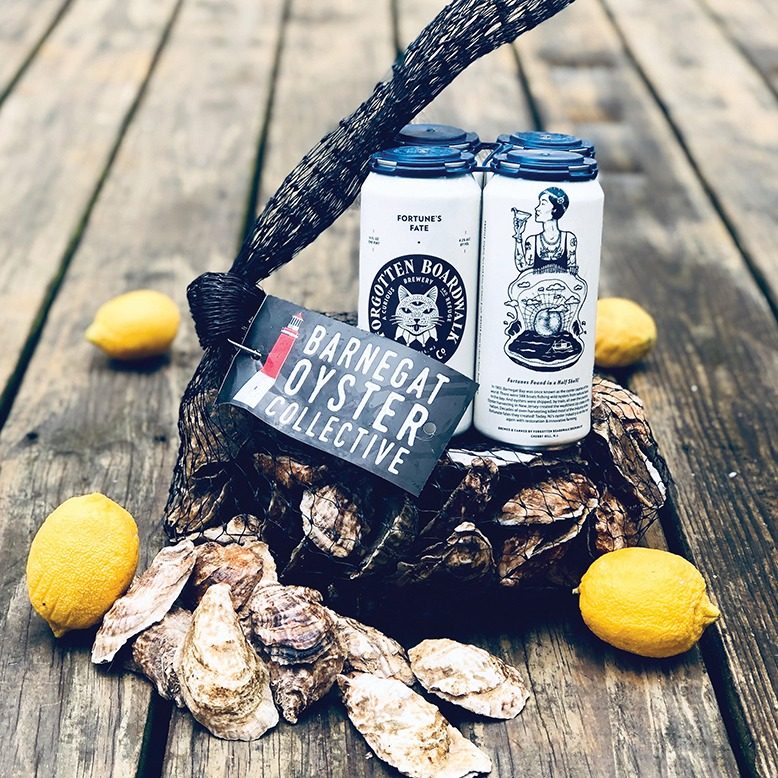
Last June, New Jersey’s seafood industry was struggling. Oyster farmers, who largely rely on sales to restaurants and raw bars, were hit especially hard. With indoor dining still off limits, oyster farmers could not offload an overwhelming surplus.
But brewers like Jamie Queli, who owns Forgotten Boardwalk Brewing in Cherry Hill, hatched a salvage plan. She’d use them to make a beer. “We really wanted to showcase the growth of the two industries,” she says, meaning oystering and craft brewing. In collaboration with Forty North Oyster Farm, part of the Barnegat Oyster Collective, Forgotten Boardwalk last July introduced Fortune’s Fate, a lemon oyster gose.
Gose is a savory, low-alcohol, German-style beer made by adding salt during the brewing process. For her version, Queli and her team omitted the salt, substituting the meat and liquor (natural juice) of hand-shucked oysters. The result is a sour ale that has pleasant hints of saltiness.
“It’s kind of perfect,” she says, comparing the beer to “eating an oyster with a little lemon.” Queli also brewed a mango version and a mango-pineapple, which were draft only. The collaboration beers sold out by the end of last summer, but Forgotten Boardwalk plans to release a new batch of oyster beers next month.
While oysters as a beer ingredient may sound unusual, the two are historically linked. Once plentiful and cheap, oysters were a popular snack for pub-goers. On the Shore, they were offered in heaps to rooming-house guests, according to Karen L. Schnitzpahn’s 2012 book, Jersey Shore Food History. In the late 1800s, brewers discovered that oyster shells, rich in calcium carbonate, made an effective natural clarifying agent and used them to filter beer prior to bottling. Later, whole shells were added, along with barley and hops, during the boil process. Eventually, someone added oyster meat as well, and the oyster stout was born.
[RELATED: What’s Cristalino? Meet the Tequila with a Tweak]
Dark, semisweet, with a hint of brininess, oyster stouts largely fell out of fashion. Now, Garden State brewers like Double Nickel, which sources oysters from Brigantine Oyster Company, are bringing them back. Gene Muller, founder of Flying Fish Brewing in Somerdale, has rereleased a cult favorite. Back in 2009, the brewery began issuing beers named for Turnpike exits. The first, Exit 1, was an oyster stout. To make it, whole East Point oysters were added to the wort, balancing its sweetness with their minerality. Flying Fish’s Exit 1 Bayshore Oyster Stout is now available in a Greatest Sips four-pack, along with the Exit 7 Pork Roll Porter, Exit 9 Redfish Hoppy Scarlet Ale and Exit 16 Double IPA. All in all, a bracing new wave of refreshment, just in time for summer.



